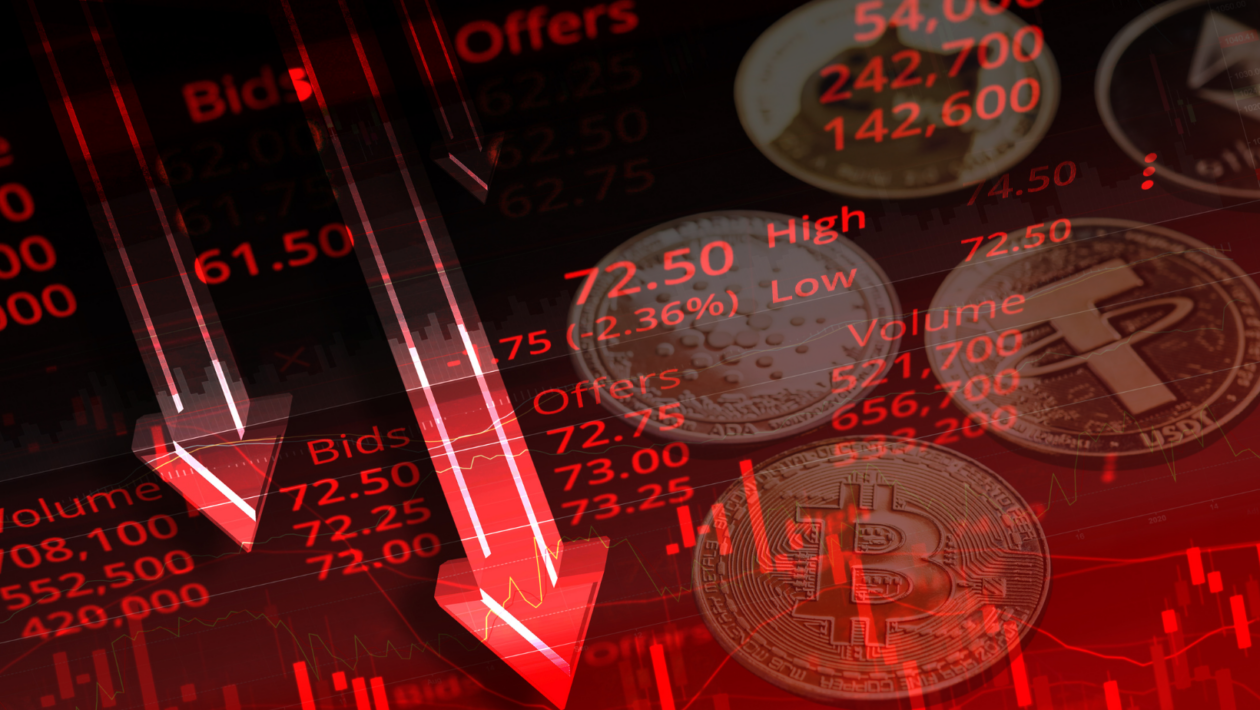The cryptocurrency industry has certainly experienced a tough year so far, exemplified by Bitcoin losing more than half its value since the start of 2022. But cyclical volatility is nothing new to crypto nor a reason for investors to panic.
Looking at recent price history, many people say we’re at the beginning of a crypto cycle and it will soon rise billions of dollars, while others might argue that crypto is dead. In the latter case, I think it’s fair to wonder whether this narrative is orchestrated and why.
Crypto is still essentially a lower-liquidity investment compared to the traditional stock market. In addition, its total market cap is currently roughly US$1 trillion, a microscopic fraction of the overall investment industry. Combine these two factors and it doesn’t take much to move crypto markets.
There also isn’t significant regulation of what people can say about crypto in open channels. As a result, some key industry players make comments on social media that are almost certainly intended to influence the crypto market in an attempt to profit off the resulting volatility.
Conversely, if you’re the CEO of a company in the traditional stock market, any communications you issue must comply with regulations around disclosure. Violating the guidance regarding forward-looking statements and what you can say to investors, even casually on Twitter, might get you in trouble with the U.S. Securities and Exchange Commission.
Since such oversight doesn’t exist in crypto, you typically won’t see someone disclosing their holdings if they appear on a financial network. So you have no idea if they hold a heavy short position on crypto, for example, when they suggest to an audience of millions that “crypto is dead.” Quite possibly, they just want to create fear, ride the price down, buy at the bottom and then ride it back up.
Alternatively, someone like Elon Musk might casually mention a cryptocurrency and the market for it will then spike upward before likely coming right back down again. Until crypto becomes more mainstream, with stricter regulations around disclosure and more available liquidity, we’ll continue to see wild action resulting from statements by influencers or insiders.
Don’t believe everything you hear
Recognizing this reality, how should investors manage the inevitable ups and downs? I recommend two main courses of action.
The first is to make informed decisions and avoid getting caught up in hype. Don’t invest in a cryptocurrency or blockchain because your friends tell you to, or you think the market is bottoming or topping. Do it because you’ve conducted the research, read the white papers and appreciate the utility. It’s the same reason why you would invest in Coca-Cola, Walmart or McDonald’s — because you believe in their business fundamentals. That mentality needs to become more ingrained in the crypto industry.
Second, don’t take undue risk. Invest only what you can afford to lose and avoid excessive leverage. Put a smaller allocation into crypto and be able to stomach downturns without losing sleep. Because if you’re stressed out by your investments, you’ll probably make bad decisions, such as unnecessarily selling at the bottom. If you have a sound mind, you’ll likely make better choices and set yourself up to succeed.
Platforms and influencers can play a role in creating a better crypto investing environment too, and I believe they have a responsibility to be transparent about the crypto market and how it moves. This is especially true because they often have inside knowledge that provides an important edge, while their social media followers tend to lack both context and experience and are usually hanging on their words.
Founders or CEOs within the crypto industry probably shouldn’t be providing concrete market guidance either. As we saw with the recent string of high-profile bankruptcies, these executives might have no better idea about what’s going on than the next person.
Unfortunately, many crypto investors get caught on short-term volatility or take too much risk because they believe everything that industry insiders say instead of doing their homework. Yes, there needs to be an element of “investor beware.” But if we’re trying to move crypto into the mainstream, then platforms, influencers and executives should at least use more tempered and less aggressive language, while becoming more cognizant of their messaging and audience.
Expected upswing
It’s possible that cryptocurrency will soon see a significant upswing, as has happened after essentially every downturn since crypto dawned with the launch of Bitcoin in 2009. The momentum of this upswing could be stronger and longer-lasting with more careful research and responsible decisions from retail investors, better behavior from crypto influencers and greater regulation from governing bodies.
But rather than speculate, investors should focus on why individual blockchains might become more valuable through mass adoption, based on their distinctive benefits, underlying technology and the people involved with them. The current downturn offers a great opportunity for investors to clean house, spend the necessary time to gain better understanding, and potentially reduce risk.
By conducting this type of evaluation, you can put yourself in a stronger position. So when the crypto market starts to rise again, your money will be in a safer place, you’ll feel better about your investments and your chances of success will increase commensurately.





